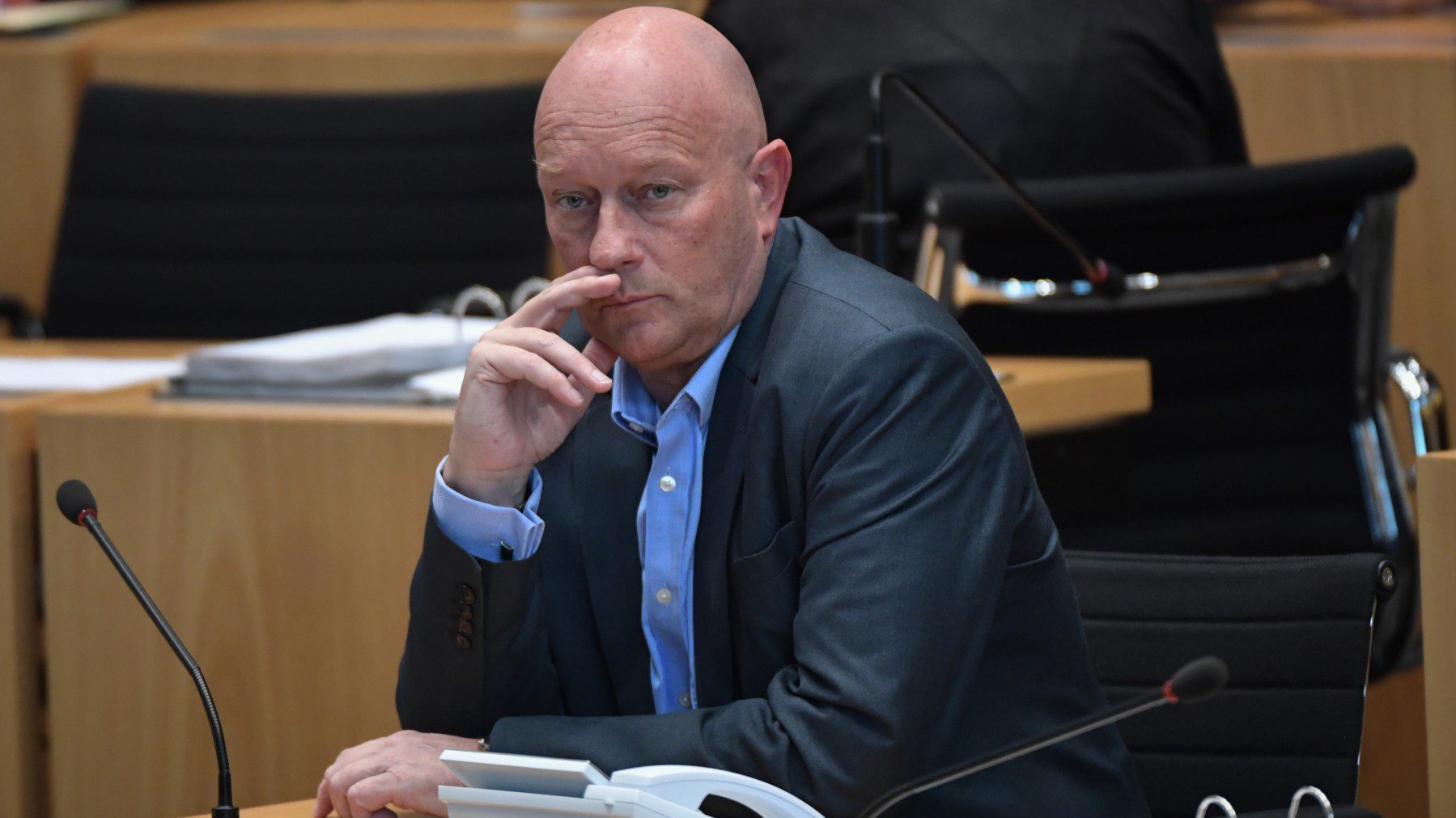
Thomas Kemmerich
Photo: Jens Schlueter / AFP
Following recent calls for cooperation with the AfD from CDU chief Friedrich Merz and leading regional CDU politicians, the leader of the Thuringian Free Democratic Party (FDP) has spoken out in favor of selective cooperation with the AfD in the east German state’s parliament.
While speaking with German public broadcaster Mitteldeutscher Rundfunk (MDR) in a summer interview on Tuesday, August 1st, Thomas Kemmerich, the chairman of Thuringia’s liberal, pro-business FDP signaled that his party may, in some cases, vote together with the AfD at state level following state parliamentary elections in Thuringia set to take place next year, the Berlin-based newspaper Junge Freiheit reports.
“We should stop discussing who enforces what with whom, but we should discuss: What should be enforced?” said Kemmerich.
In Thuringia’s 2020 state elections, following a better-than-expected performance by the AfD that saw them garner the second most seats in the lawmaking body, Kemmerich was elected as the Minister-President of Thuringia with votes from AfD deputies. Days later he resigned following the intervention by then Chancellor Angela Merkel (CDU) and the FDP’s federal leadership, which ultimately nullified the result.
“My desired constellation is a German coalition of CDU, SPD, and FDP. That corresponds most closely to the middle of society. That is sustainable,” Kemmerich said, adding that his FDP state association had ruled out forming a government with the Greens. He said he rejects the Green Party’s influence “on people’s lifestyles, including [on their] mobility, nutrition, and energy supply.”
In light of the latest polling data, however, it’s unclear as to whether Kemmerich’s desired outcome will be able to be realized. According to the latest surveys, the SPD, CDU, and FDP, collectively, would garner just 34% of the vote if elections were held this weekend. The AfD, meanwhile, has nearly just as much support as the three parties, at 32%.
THÜRINGEN | Sonntagsfrage Landtagswahl INSA/TA/OTZ/TLZ
— Deutschland Wählt (@Wahlen_DE) July 13, 2023
AfD: 32% (+4)
LINKE: 22%
CDU: 20% (-1)
SPD: 10% (-1)
GRÜNE: 5% (-1)
FDP: 4% (-1)
Sonstige: 7%
Änderungen zur letzten Umfrage vom 27. April 2023
Verlauf: https://t.co/su156YsLx8#ltwth pic.twitter.com/3PgfABdPBP
If the figures remain static, this means that in order to pass legislation in the upcoming state parliament, the SPD-CDU-FDP coalition will need the support of either The Left Party or the AfD.
Kemmerich’s comments come after CDU leader Friedrich Merz, in a summer interview published last week with the public broadcaster ZDF, shocked everyone—and faced considerable backlash from members inside and outside of his party—after he said that the ban on the CDU’s cooperation with the AfD does not apply at the local level.
Days later, in an interview with Apollo News, several leading Thuringian CDU politicians, including MP Michael Heym, Ralph Luther, who has served as a district administrator in southern Thuringia for over two decades, and Ralph Liebaug, the Chairman of the CDU in Schmalkalden-Meiningen, all argued in favor of dismantling of the firewall.
